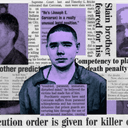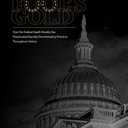
A panel of the U.S. Court of Appeals for the First Circuit has overturned the death sentence imposed on Dzhokhar Tsarnaev (pictured) for his role in the April 2013 Boston Marathon bombing that killed three people and injured more than 250 others.
The panel unanimously ruled on July 31, 2020, the court ruled that U.S. District Court Judge George A. O’Toole Jr. had failed to adequately question jurors about their exposure to pervasive pretrial publicity about the case. “A core promise of our criminal justice system is that even the very worst among us deserves to be fairly tried and lawfully punished,” Judge O. Rogeriee Thompson, joined by Judges William J. Kayatta Jr. and Juan Rafael Torruella, wrote. “Despite a diligent effort, the judge here did not meet th[at] standard.”
With Judge Torruella dissenting, the court ruled 2 – 1 that Tsarnaev had been properly tried in Boston.
The court granted Tsarnaev a new sentencing hearing, saying that while the trial court properly inquired as to the sources of information from which jurors had heard about Tsarnaev and the bombing, it failed to question nine of the twelve impaneled jurors about the content of what they had read and heard. Some of that coverage, Thompson noted, “included inaccurate or inadmissible information — like the details of [a hospital interrogation before he had been read his rights] and the opinions of public officials that he should die.”
The trial court’s failure to discern what the jurors knew, Thompson wrote, improperly “delegate[d] to potential jurors the work of judging their own impartiality.” That made it “too difficult for [the court] and the parties to determine both the nature of any taint … and the possible remedies for the taint,” she said.
The court’s decision enabled it to avoid having to address charges of actual bias against two of the jurors. Tsarnaev’s defense lawyers had presented the court with evidence of bias that included undisclosed tweets by the jury forewoman prior to trial calling Tsarnaev “that piece of garbage.”
Although the appeals court ordered the district court to conduct a new sentencing trial on Tsarnaev’s capital murder charges, it upheld the multiple life sentences the lower court imposed on non-capital charges. The panel also ordered that Tsarnaev be acquitted of three firearms possession charges, but “just to be crystal clear,” Judge Thompson added that “Dzhokhar [Tsarnaev] will remain confined to prison for the rest of his life, with the only question remaining being whether the government will end his life by executing him.”
The U.S. attorney’s office in Boston, which tried the case, did not offer an immediate comment, but Carmen M. Ortiz, who was U.S. attorney at the time of the Tsarnaev trial, told the Washington Post the ruling was “unfortunate and disappointing.” “[T]he most disappointing piece of this,” she said, “is that it brings tremendous pain and suffering for victims and victims’ families, and survivors of Tsarnaev’s crimes. My heart goes out to them.” Federal prosecutors have the option of seeking rehearing before all the appeals judges of the First Circuit, petitioning the U.S. Supreme Court to review the case, or accepting the outcome of the appeal. In the latter case, prosecutors would have to decide whether to conduct a new penalty trial or end the case by dropping the death penalty.
Tsarnaev’s lawyers praised “the Court’s straightforward and fair decision.” In a statement released after the ruling was announced, they wrote: “If the government wishes to put someone to death, it must make its case to a fairly selected jury that is provided all relevant information. The court rightly acknowledges, as do we, the extraordinary harm done to the victims of the bombing. It is now up to the government to determine whether to put the victims and Boston through a second trial, or to allow closure to this terrible tragedy by permitting a sentence of life without the possibility of release,”
The decision produced strong and varied reaction among the surviving bombing victims and the Boston community. Robert Wheeler, who suffered traumatic brain injury and hearing loss, as well as lacerations from flying glass after the bombing, said “I just feel betrayed, and I’m truly heartbroken. … The smells, the sulfur, I just remember that every day.”
Two of Liz Norden’s sons lost legs in the bombings. The decision, she said, left her “in disbelief.” “If this case didn’t deserve the death penalty, what would?” she said.
Laurie Scher, who was working in a medical tent at the marathon, said “I was in tears because it brings it all back. … So many of us were afraid this was going to happen, because he did get the death penalty, this was going to keep coming back, and it opens up old wounds and it is devastating.”
Bill and Denise Richard, whose son Martin was the youngest victim killed in the bombing, referred reporters to a statement they made in 2015 about the case. The Boston Globe editorial board referred to the statement in a July 31 editorial calling for the end of the federal death penalty. The newspaper wrote:
“In 2015, the plea of Bill and Denise Richard — the parents of Martin Richard, the youngest victim of the Boston Marathon bombing — graced our front page.
“‘We know that the government has its reasons for seeking the death penalty,’ they wrote, ‘but the continued pursuit of that punishment could bring years of appeals and prolong reliving the most painful day of our lives. We hope our two remaining children do not have to grow up with the lingering, painful reminder of what the defendant took from them, which years of appeals would undoubtedly bring.’
“Their words were painfully prescient. Friday, that appeals process resulted in the death sentence of Boston Marathon bomber Dzhokhar Tsarnaev being thrown out, ensuring a protracted legal fight that will only extend and amplify the Richards’ already unthinkable pain.”
Globe columnist Adrian Walker wrote that “[i]f any case calls for the death penalty,” this was it. But, he said, “I believe that another Boston Marathon trial is the last thing this city needs. I believe such a trial would bring little in the way of justice, or ‘closure.’ I think it is time for this case to end.”
David Abel, Travis Andersen, Tonya Alanez and Milton J. Valencia, Federal appeals court vacates Tsarnaev death sentence, orders new penalty-phase trial, Boston Globe, July 31, 2020; Ellen Barry, Boston Marathon Bomber’s Death Sentence Is Thrown Out by Court, New York Times, July 31, 2020; Maria Sacchetti and Mark Berman, Death sentence overturned for Boston Marathon bomber, Washington Post, July 31, 2020; Jim Mustian and Wilson Ring, Ruling renews fairness debate in Boston Marathon bomber case, Associated Press, August 1, 2020; Eli Rosenberg, ‘Truly Heartbroken’: Boston Marathon Bombing Survivors on Shock Tsarnaev Ruling, NBC Boston, August 1, 2020; Laura Crimaldi, ‘This was an attack on all of us’: Tsarnaev decision sparks anger, sorrow, Boston Globe, August 1, 2020; Adrian Walker, Another Tsarnaev trial is the last thing Boston needs, Boston Globe, August 2, 2020; Rebecca Klar, Trump calls for death penalty for Boston Marathon bomber after appeals court vacated death sentence, The Hill, August 2, 2020; Editorial, End the federal death penalty now, Boston Globe, July 31, 2020
Read the First Circuit’s opinion in United States v. Tsarnaev.



